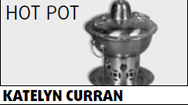Discovering the truth behind the mask of fear
By Katelyn Curran ( China Daily ) Updated: 2009-06-30 10:46:00People wearing surgical masks immediately greeted me after landing in Beijing. What a welcome to China!

My host from China Daily, where five other US college students and I would be working as interns, said we were now in quarantine.
Some students had flown on flight CA 982, which carried a man suspected of having the H1N1 virus.
The mask provoked thoughts of the exaggerated panic regarding the virus back home.
Hospital rooms filled to capacity and people wore masks with the most chic attire. A mild version of the Y2K hysteria - the computer crash leading to the end of the world - was occupying the nation.
Instead of beginning work on Monday, we were restricted to our hotel rooms for one week and had to keep a log of every place we'd visited. Twice a day, masked female employees recorded our temperatures.
My first week in Beijing wasn't what I had envisioned it to be. I was unable to see the real China, acclimate myself to the city or enjoy unfamiliar cuisine.
I wouldn't be receiving my China Daily ID, meeting my colleagues or getting my first desk at a newspaper, which I had looked forward to.
A week without work sounds ideal, but it's not when you feel trapped by the hysteria and acknowledged by masks and hand-covered faces like a leper. I was frustrated that I paid so much money to get to China, and currently it was not meeting my expectations.
At this point I'd only seen the inside of the 7-11, the bottom of a Bacardi bottle and the unattractive view from our room window - dilapidated buildings and employees on their cigarette break.
I was lying trapped in a room that I was paying for. I felt lazy and unadventurous and could've wasted this time in the States free of charge.
I thought that the Chinese government believed Americans to be an epidemic invading their capital, and this time we brought disease with us.
I'd soon find I was mistaken.
|
|
|
|
|
|
|
|


























 Raymond Zhou:
Raymond Zhou: Pauline D Loh:
Pauline D Loh: Hot Pot
Hot Pot Eco China
Eco China China Dream
China Dream China Face
China Face






